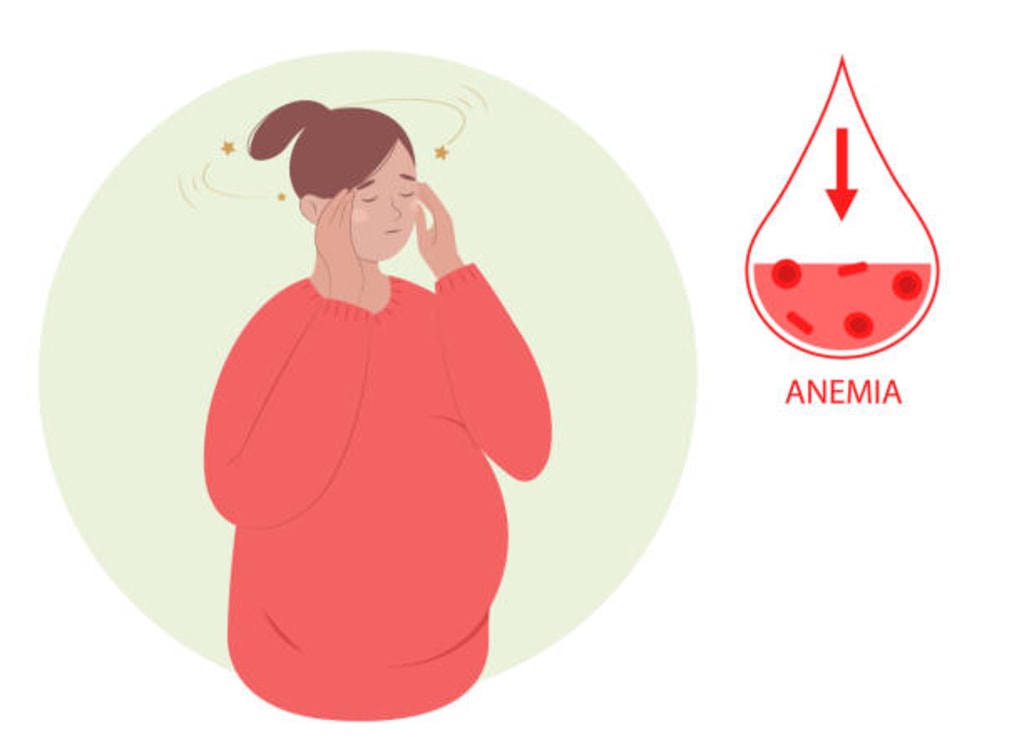Signs of Blood Shortage in the Body and Drinks to Increase Blood Count
Understanding how the body works

Signs of Blood Shortage in the Body and Drinks to Increase Blood Count
Blood shortage, also known as anemia, is a condition that occurs when the body lacks enough healthy red blood cells to transport oxygen efficiently. It can lead to various symptoms and complications, affecting overall health and well-being. In this article, we will explore the signs of blood shortage and focus on drinks that can help increase blood count naturally. These beverages are packed with essential nutrients, vitamins, and minerals that promote red blood cell production, leading to improved blood count and overall health.
Recognizing the signs of blood shortage is crucial in identifying the condition early and seeking appropriate medical attention. Here are common symptoms and indicators:
Fatigue and Weakness: Feeling tired and weak, even after sufficient rest, can indicate low red blood cell count and oxygen deprivation in the body.
Shortness of Breath: Difficulty in breathing, especially during physical activity or exertion, may be a result of decreased oxygen-carrying capacity in the blood.
Pale Skin and Nail Beds: A pale complexion, particularly noticeable in the face, lips, and nail beds, can be indicative of reduced red blood cell levels.
Rapid Heartbeat: Anemia may lead to an increased heart rate as the body tries to compensate for the low oxygen levels.
Dizziness and Headaches: Insufficient oxygen supply to the brain can result in dizziness, lightheadedness, and frequent headaches.
Cold Hands and Feet: Reduced blood flow due to low red blood cell count can cause extremities to feel cold to the touch.
Chest Pain: Severe anemia can strain the heart, leading to chest pain or angina.
Drinks to Increase Blood Count Incorporating nutrient-rich drinks into your diet can help increase your blood count naturally. These beverages contain essential vitamins, minerals, and other compounds that support red blood cell production. Here are some drinks you can consume:
Beetroot Juice: Beetroot is rich in iron, folate, and antioxidants, all of which aid in boosting blood count. Beetroot juice stimulates red blood cell production and improves oxygen-carrying capacity. It can be consumed as a standalone juice or mixed with other fruits and vegetables.
Spinach Smoothie: Spinach is an excellent source of iron, vitamin C, and folate. Combining spinach with other fruits like berries and a citrus juice (rich in vitamin C) enhances iron absorption. Blend spinach with your preferred fruits and liquids to create a nutritious smoothie.
Pomegranate Juice: Pomegranate juice is packed with iron, vitamin C, and antioxidants, which help increase hemoglobin levels and improve blood count. Drinking fresh pomegranate juice regularly can have a positive impact on anemia.
Carrot and Beet Juice: A combination of carrots and beets can provide a potent mix of vitamins, minerals, and antioxidants. Carrots are rich in vitamin A, while beets contain iron, folate, and vitamin C. Blend both vegetables together to create a nutritious drink that promotes blood cell production.
Green Vegetable Juice: A blend of various green leafy vegetables like kale, spinach, and celery can provide a significant boost to blood count. These vegetables are high in iron, folate, and vitamin C, which are essential for red blood cell synthesis. Adding a small amount of lemon juice can further enhance iron absorption.
Citrus Fruit Juices: Oranges, grapefruits, lemons, and other citrus fruits are excellent sources of vitamin C. Vitamin C aids in the absorption of iron from plant-based sources, making it a valuable addition to any drink meant to increase blood count.
Nettle Tea: Nettle tea is known for its iron and vitamin C content, which promotes red blood cell production and supports overall blood health. Steep nettle leaves in hot water to create a refreshing and beneficial tea.
Herbal Infusions: Herbal teas and infusions made from ingredients like dandelion, chamomile, and red clover may offer benefits for blood count and overall health. These herbs are often used to support blood purification, circulation, and iron absorption.
Recognizing the signs of blood shortage is essential for maintaining overall health and well-being. If you experience symptoms such as fatigue, weakness, shortness of breath, or pale skin, it is crucial to consult a healthcare professional for diagnosis and treatment. Alongside medical intervention, incorporating nutrient-rich drinks into your diet can help increase blood count naturally.
Drinks such as beetroot juice, spinach smoothies, pomegranate juice, carrot and beet juice, green vegetable juice, citrus fruit juices, nettle tea, and herbal infusions can provide the body with essential nutrients that support red blood cell production. These beverages contain iron, folate, vitamin C, and antioxidants, which are vital for optimal blood health. However, it is important to note that while these drinks can complement a healthy diet, they should not replace proper medical treatment or advice.
By incorporating these nutritious drinks into your daily routine, you can contribute to improving your blood count and overall well-being. Remember to consult with a healthcare professional for an accurate diagnosis and appropriate treatment plan to address any underlying causes of blood shortage or anemia.
About the Creator
Bridget Dyke
As a passionate writer of fiction and general articles, I invite you to embark on an extraordinary literary journey with me. With immersive stories and thought-provoking articles that will captivate your mind and touch your soul.
Enjoyed the story? Support the Creator.
Subscribe for free to receive all their stories in your feed. You could also pledge your support or give them a one-off tip, letting them know you appreciate their work.






Comments
There are no comments for this story
Be the first to respond and start the conversation.